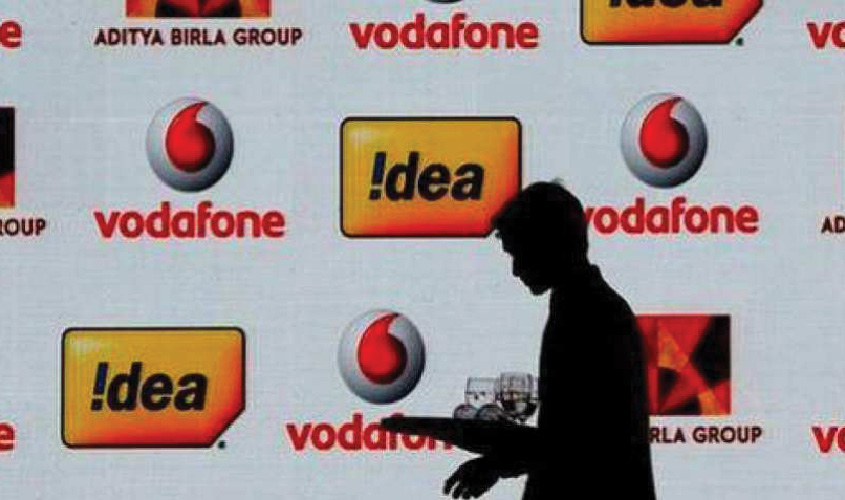The government’s insistence on recovery of dues will lead to sector meltdown.
The headwinds in Indian telecom have never been as strong as they look right now, threatening to lead to a complete meltdown of the sector. After closely tracking this sector for over 11 years now, this author has come to the conclusion that the government and judiciary have, on most occasions, made matters worse for the sector. Indian telecom, to a large extent, grew despite government intervention and judicial overreach. A large domestic market, ever increasing appetite for data, global companies flush with funds looking for growth opportunities collectively led to India becoming the world’s second fastest growing telecom market for almost a decade. But all that now seems like a thing of the past. From a market of more than 12 players in 2012, India is now headed towards being a duopoly (market with just two companies). So who benefits in such a scenario? No one, absolutely no one. Banks have one of the highest exposures to the sector, with total loans being close to Rs 7 lakh crore. If companies fold up, which they are being driven to right now, and file for insolvency it is unlikely banks will be able to recover their outstanding. The cascading impact of a big company going under is multi-fold. From vendors to jobs, there is just too much at stake. That when a 41 billion pound MNC like Vodafone has its back to the wall and is forced to exit the market is likely to impact bilateral trade relations between India and the UK is also very plausible. Not to mention the massive impact on consumers.
Vodafone PLC has already written off its India business and has massive outstanding on account of both AGR dues and spectrum dues. The company reported a net loss of Rs 50,922 crore in the September quarter following the AGR judgement virtually wiping out its entire net worth.
The Supreme Court’s recent order on the AGR issue, asking the telecom major to pay Rs 53,039 crore to DoT has put it in a very tight spot. In addition to this, Vodafone Idea needs to pay Rs 88,530 crore for the spectrum that it has bought in previous auctions. What’s worse is the company’s plea for no coercive action for delay in payments was rejected by the court. This paves the way for a finality to the outcome of the telecom mess that India is in right now. March 13 is the date by when telcos need to cough up the entire amount, so in the next fortnight there will be clarity on whether Vodafone Idea will continue to operate or not. And whether Indian telecom will be able to recover from this shock or not. Remember in 2012, the Apex Court cancelled 122 licences issued by Government of India and though the sector recovered there has been significant economic damage since then.
The AGR issue raises a larger question on the message that the government is sending to global investors and the attitude of policymakers towards a sector which has for long been India’s sunshine sector and one of its biggest success stories. The need of the hour is a roadmap to fix the sector and confidence-building measures to improve the vitiated investment climate. When Telecom Department lost the AGR case in the telecom tribunal—TDSAT—and the sector regulator—TRAI—backed the companies, the government could have decided not to pursue the case any further. Even now the government can seek principal payment in staggered instalments and waive off the rest—penalty+interest+interest on penalty adding up to nearly 75% of total dues.
Vodafone’s India journey has been extremely bumpy. It won the court battle against the government regarding a $2 billion tax bill but the then Finance Minister Pranab Mukherjee brought in a regressive retrospective law.
So if a government can come up with a retro tax regulation after losing a court case, it can most certainly come up with some bailout package or an executive decision if it wins the case. Especially when the premise of the case is fundamentally flawed. Government earns 8% of revenues of telecom companies as licence fees and has no business seeking a share of the non-licensed revenues. For instance, if companies earn from forex gains or interest income or dividend, it is not because of the spectrum they have licensed from the government and should therefore not be asked to cough up 8% of that as licence fees.
At the end of the day, this is not about a single case or a single company; it is about the financial health of a core sector. Any sector can thrive only when there is competition. India saw a drastic reduction in mobile charges only when telcos were competing with each other for more market share. When there will be only two players, quite naturally prices will increase. And what happens to the 311 million customers of the company? If they port to either Rel Jio or Bharti Airtel, their networks will crash.
Telecom networks are built keeping in mind a certain load and can absorb a certain amount of traffic. Such large scale porting will mean networks will collapse under this tremendous load. It will mean India’s journey towards 5G or 6G will get longer as companies will be first forced into building additional capacity to address excess traffic.
It will also mean India’s internet ecosystem will be severely impacted as telecom networks are the backbone on which payment companies, payment banks, etc., all run. This will deal a body blow to the roadmap of boosting the digital economy and government’s vision of Digital India.
Finance Minister Nirmala Sitharaman has been ill advised to factor in these revenues from telecom companies in her budget math. While India’s fiscal numbers may look better with Rs 1.47 lakh crore additional receipts, Indian telecom will be the biggest casualty.
Gaurie Dwivedi is a senior journalist covering economy, policy and politics.

